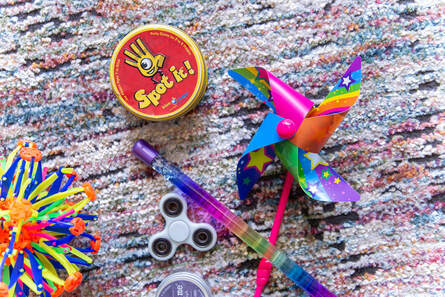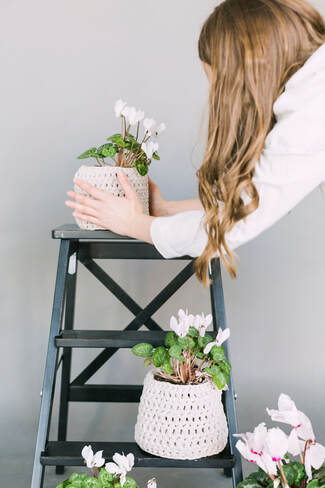Self-Care for Kids

This has been on my mind this week- the idea of self-care for younger kids. Typically, when we think of the word “self-care,” we think of adults who may need help managing the chaos in their life. I’d say that this is an accurate definition; self-care is often most applicable to the grown-ups of the world. However, kids can benefit from some self-care as well. Sure, kids can and should look to adults to provide peace and comfort, but I don’ t think that means they can’t also learn ways to self-regulate and help themselves feel better.
Kids can have hectic lives too. I think we sometimes forget that. From an adult lens, childhood can look so simple and structured. But if we think back to what it was like to be a kid, we start to remember that all of the so-called small problems felt like big huge monster problems. People’s perception is their reality, and that extends to children too.
Practicing self-care helps children build emotional regulation skills from an early age. Here are a few ways that we can start to help our kids learn about healthy, age-appropriate self-care practices.
Journaling
Journaling is a powerful self-care activity for kids. Not only is it a great way to express their feelings, but it also gives them a double dose of writing practice. Practicing the same skills that they are learning in school can be helpful in their academic growth. My experience working in schools has taught me the value of integration when it comes to counseling, wellness, and academic education. Anytime you can get kids to read and write outside of school is going to improve their educational experience.
Kids can use journals in so many different ways. Just like an adult self-care journal, it can be used for daily reflection, goal setting, writing down ideas and dreams, drawing, doodling, or simply just venting. Oh, and don’t forget about decorating the cover- these journals have self-care written all over them.
Play
There’s a reason that children are required to have recess and physical education at school. Kids need unstructured time to wind down and casually socialize with their peers. It’s necessary for proper brain development and fosters a healthy brain climate. We all need to do a better job remembering that our brain is a part of our body. It has needs too.
Nap Time
Okay, so this is my soapbox. I don’t know if it’s like this everywhere, but where I live kindergartners don’t get nap time. I find this crazy. I operate on a siesta mindset, so I think nap time, or at least a time for rest, should be universal for all ages. However, there’s no question that kids need rest. Not only is it vital for physical and developmental growth, but resting also helps us to manage stress better.
Having kids begin to identify when they need a break to rest and self-initiate the process is a considerable step in emotional development. One of the most common behavioral goals for students is to help them learn to know when they need a break and appropriately ask for it. If we teach our kids to practice awareness of their mental and physical needs, they will be better prepared to grow and handle natural challenges.
“I’m taking care of myself right now.”
The key to making all of these things self-care is to help kids identify it as self-care. In my practice with adults, I have found myself repeatedly reminding my clients to make sure that they recognize the self-care that they are already doing. We often take these things for granted, and it can help to start rewiring our brains to notice the self-care nature of our day to day tasks and activities. The trick is being mindful and proclaiming aloud any bit of self-care that we experience. The earlier in life that we can instill this way of thinking, the better; it’s much easier to wire than to rewire.
Author
Amanda Smith is a licensed clinical social worker who focuses on identifying and capitalizing on existing inner strengths and using them to help formulate a personalized plan for wellness. Amanda is a school social worker who primarily works with teens and adult who are experiencing anxiety, depression, and general life concerns. You can find out more about her in her bio .
